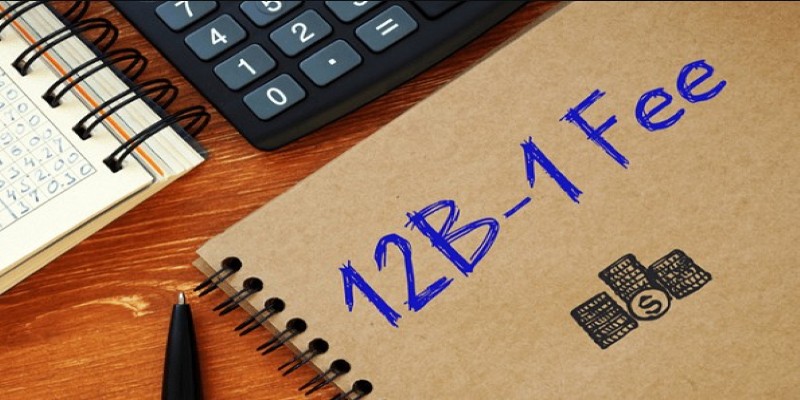Mutual Fund Fees You Should Know About
Investing in mutual funds is a popular way for individuals to grow their wealth, thanks to the accessibility, diversification, and professional management these funds offer. However, while the promise of potential returns is appealing, it's crucial to understand the fees associated with mutual funds. These fees can significantly affect the overall performance of your investment, making it essential to grasp the different types of fees that may apply. This article will walk you through the common fees associated with mutual funds, explaining how they work and what they mean for your investment strategy.
What Are Mutual Fund Fees
Mutual funds charge fees for a variety of reasons, primarily to compensate the fund manager and cover the costs of managing the fund’s operations. These fees can either be flat or based on the assets under management, and they vary significantly from one fund to another. Investors need to be aware of these charges because even small fees can have a big impact on long-term returns.

The most common types of fees associated with mutual funds are expense ratios, sales loads, and transaction fees. Each of these fees serves a different purpose and can be either direct or indirect costs to the investor.
Expense Ratios: The Most Common Fee
The expense ratio is one of the most significant fees you’ll encounter when investing in mutual funds. It represents the percentage of the fund's assets that are used for administrative, management, and other operational expenses. This includes salaries for fund managers, custodial services, marketing costs, and sometimes even fees for auditing and legal services.
Expense ratios are usually expressed as an annual percentage, and they can range anywhere from 0.05% for ultra-low-cost index funds to over 2% for actively managed funds. While it may seem like a small percentage, the impact on your investment grows over time. For example, a 1% expense ratio might reduce your returns by a substantial amount over the course of several years. If a fund has a higher expense ratio, it needs to outperform other investments by more than the difference in fees to make it worthwhile.
Sales Loads: The Fees For Buying Or Selling
Sales loads are fees that investors pay when they buy or sell shares in a mutual fund. These fees can be charged in two primary ways: front-end loads and back-end loads.
A front-end load is a fee that is charged when you buy shares in the fund. This fee is typically a percentage of your investment, ranging from 1% to 5%, although some funds may not charge a front-end load at all. For example, if you invest $10,000 in a fund with a 5% front-end load, you will only be able to invest $9,500, with the $500 going toward the sales commission. This fee is deducted upfront and can reduce the amount of your initial investment.

On the other hand, a back-end load (also known as a contingent deferred sales charge or CDSC) is charged when you sell your shares in the fund. The fee decreases over time, so if you hold onto your shares for a longer period, the cost may be reduced or even eliminated. This structure is often used in funds with longer-term investment goals, encouraging investors to stay invested for a specific number of years before the back-end load is fully waived.
12b-1 Fees: The Marketing Fees
The 12b-1 fee is a fee that mutual funds charge to cover marketing and distribution expenses. These fees are usually deducted from the fund’s assets and are included in the expense ratio. They can range from 0.25% to 1% annually, depending on the fund.

The 12b-1 fee is often used to compensate brokers for selling the fund and promoting it to potential investors. While these fees are not always disclosed clearly, they are nonetheless important to keep in mind. Although the 12b-1 fee is part of the expense ratio, it is a separate charge that directly impacts your return. If you're investing in a fund with a high 12b-1 fee, you may want to reconsider whether the fund offers enough value for the cost.
Redemption Fees: The Charges For Early Withdrawals
Redemption fees are charged when you sell your shares in a mutual fund before a specific period, which typically ranges from 30 to 180 days. These fees are intended to discourage short-term trading, which can hurt the performance of the fund and create additional costs. The redemption fee is usually a percentage of your investment (typically 1% to 2%), and it is deducted when you sell your shares.

Although redemption fees are not as common as other fees, they can be significant for investors who are not planning to hold onto their investments for a long period. It’s important to read the fine print of any mutual fund you are considering to see if redemption fees apply.
How To Minimize The Impact Of Mutual Fund Fees
There are several strategies you can employ to minimize the impact of mutual fund fees on your investment returns. One of the simplest ways is to choose funds with lower expense ratios. Index funds and exchange-traded funds (ETFs) often have lower fees than actively managed funds, making them a great option for cost-conscious investors.

Another strategy is to look for no-load funds, which do not charge sales loads when you buy or sell shares. These funds can be particularly beneficial for investors who prefer to avoid upfront or back-end costs.
Finally, consider your investment horizon. If you're planning to hold your investment for the long term, you may be better off choosing funds with lower fees, even if the initial returns appear less promising. Over time, the cost savings will compound, providing you with better long-term growth.
Conclusion
Mutual fund fees are an important factor to consider when investing, as they can significantly impact the growth of your investment over time. Understanding the different types of fees—such as expense ratios, sales loads, and transaction fees—will help you make more informed decisions and avoid surprises down the road. By selecting low-cost funds and being mindful of hidden charges, you can maximize your returns and build a more efficient investment portfolio. Always remember to do your due diligence and assess all fees before making any investment decision.